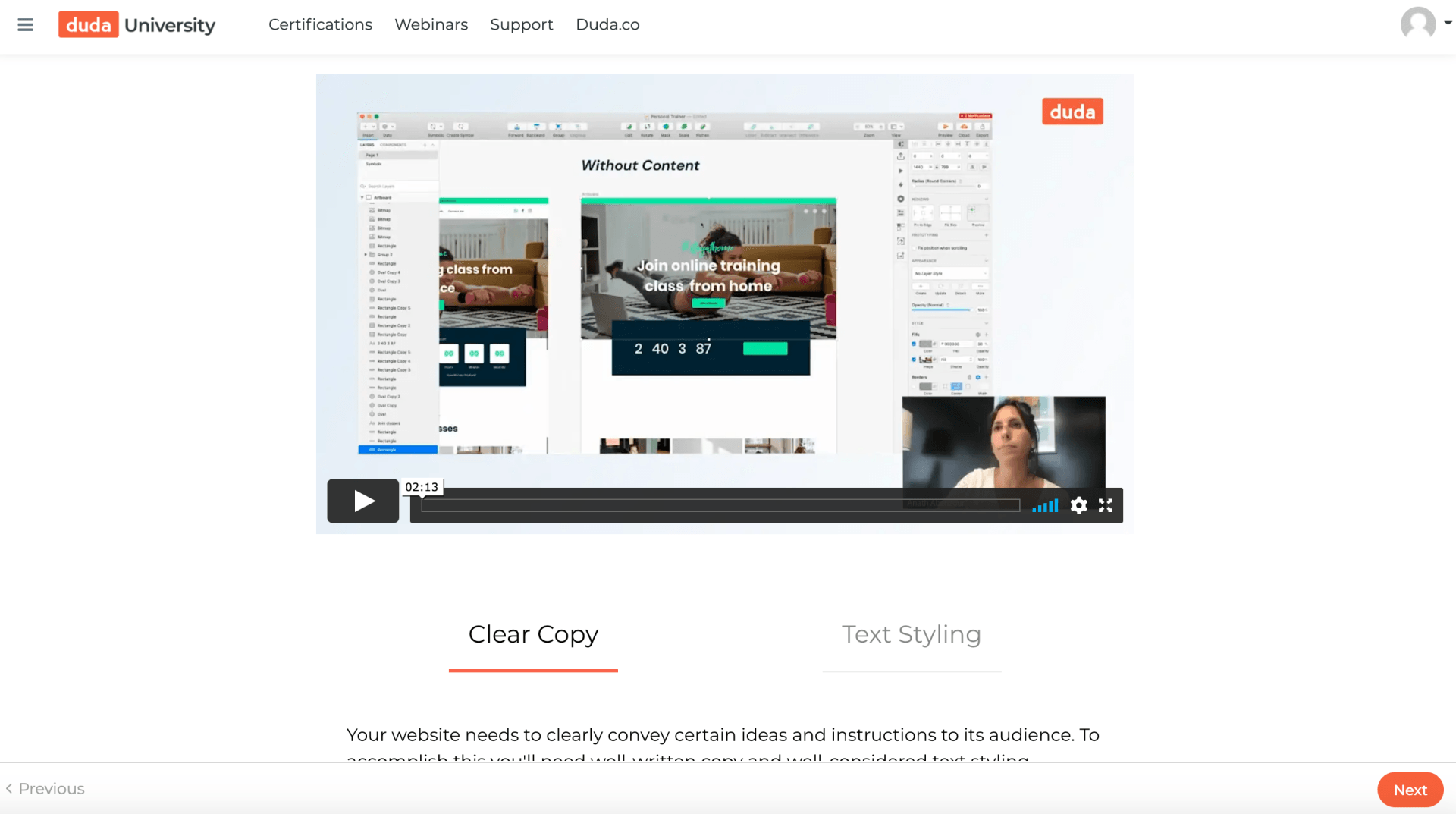Online learning is one of the most prevalent activities that happens on the web today. According to
Syngene Research (2019), the global eLearning market is “expected to reach $336.98 billion by 2026, at a compound annual growth rate (CAGR) of 9.1% from 2018 to 2026.” eLearning solutions providers and learning management systems (LMS) around the world are poised to benefit from this incredible growth. However, as the market grows and competition diversifies, these SaaS platforms and solutions providers will need to innovate their product suites to keep up with demand.
One of the most immediate and powerful ways for LMS platforms to stay ahead of the competition is to package their courses in beautiful HTML web pages that are easy to manage using a website builder platform.
Let’s explore why…
Online Courses Deserve Custom Designs
LMS platforms are incredibly powerful tools that form the backbone of any great online learning experience by tracking student progression, offering quizzes and tests, issuing certificates and more. However, when it comes to the user interfaces (UI) of the actual courses, designs can feel a bit stale and students may suffer from a lackluster experience.
It’s true that some LMS platforms provide their users with a basic landing page template that can be used as a lobby page for new students who are looking to sign up for classes. Some LMSs even go so far as to offer a rudimentary text editor and access to HTML source code to allow for some amount of course design customization.
Unfortunately, online courses built in this manner often end up feeling like PowerPoint presentations from the early 2000s, and on today’s web, that simply isn’t enough. Online learners are used to media-rich web experiences that offer eye-popping designs and allow them to scroll a page to engage with its content.
In contrast, a website builder enables users to create beautiful and scrollable designs quickly and easily using a drag-and-drop editor. Image galleries, video content, transition animations and more, can all be added to a page with just a few clicks. You can even create and save custom page and site section templates designed specifically for online learning. Once published to the web, these pages can be added to an online course using iFrames or a deeper integration via APIs.
SCORM Isn’t What It Used to Be
Given the restrictive nature of most LMS course design editors, many online education professionals use a third-party authoring software to create the front-end experiences of eLearning courses.
SCORM (Shareable Content Object Reference Model) has long been the industry standard that these platforms have adhered to; however, it has its issues. SCORM’s most recent edition has
not been updated since 2009, and the industry standard is becoming less… well, standard.
For example,
Duda recently built all of its
Duda University online courses without using SCORM-compliant authorship tools. Instead we opted to use Duda’s site builder to create beautiful web pages and integrate those with
Skilljar’s LMS platform. We chose to do this because Duda’s website builder enabled us to access a wider range of flexible design features than SCORM-compliant authoring tools. And it was more efficient.
Updating online courses using SCORM-compliant tools can take up a lot of time and resources due to the fact you need to reupload a new zip file to your LMS every time a course needs to be updated. However, since we simply added iFrames with Duda web pages in Skilljar to create our online courses, all of this can be easily managed on the fly from inside the Duda platform.
Since launch, Duda has already certified nearly 600 web professionals through its university.
Most Education Professionals Aren’t Designers or Coders
A drag-and-drop website builder has the advantage of being easy enough for almost anyone to use. SCORM-compliant authoring tools and basic HTML editors in LMS platforms are another story. Given that most users who actually create course content are not web designers familiar with the finer points of coding, it makes sense to offer them a simplified tool they can easily update themselves in order to keep online courses fresh and relevant.
A website builder not only provides this user-friendly environment, but also offers
roles and permissions that enable the locking of certain elements on a web page so only specific content and design elements can be changed. This ensures that individual educators aren’t able to break online course design templates that have been created by LMS customers.
There Is Power in Partnership
As stated above, most online learners today want to engage with eLearning courses that are more reflective of the experiences they’re used to on the web. Additionally, most institutions that offer online learning want a cohesive and simplified way to manage their online courses.
So what’s the solution?
Well, LMS platforms could invest heavily in their own course design tools to bring their product capabilities in line with user expectations. However, building out a comprehensive native design product can suck up an incredible amount of resources that would be better spent focusing on the core competencies of your LMS.
By contrast, partnering with a known web design platform (like Duda) allows you to take advantage of the knowledge, skills and experience of that team. This puts you far ahead of the competition right out of the gate. Maintenance of and investment in these tools can all be handled by the third-party vendor, which translates into a competitive advantage for your LMS without the overhead complications.
Want to learn more about how partnering with a website builder can take your LMS to the next level? Email us at partners@duda.co or visit
www.duda.co.









